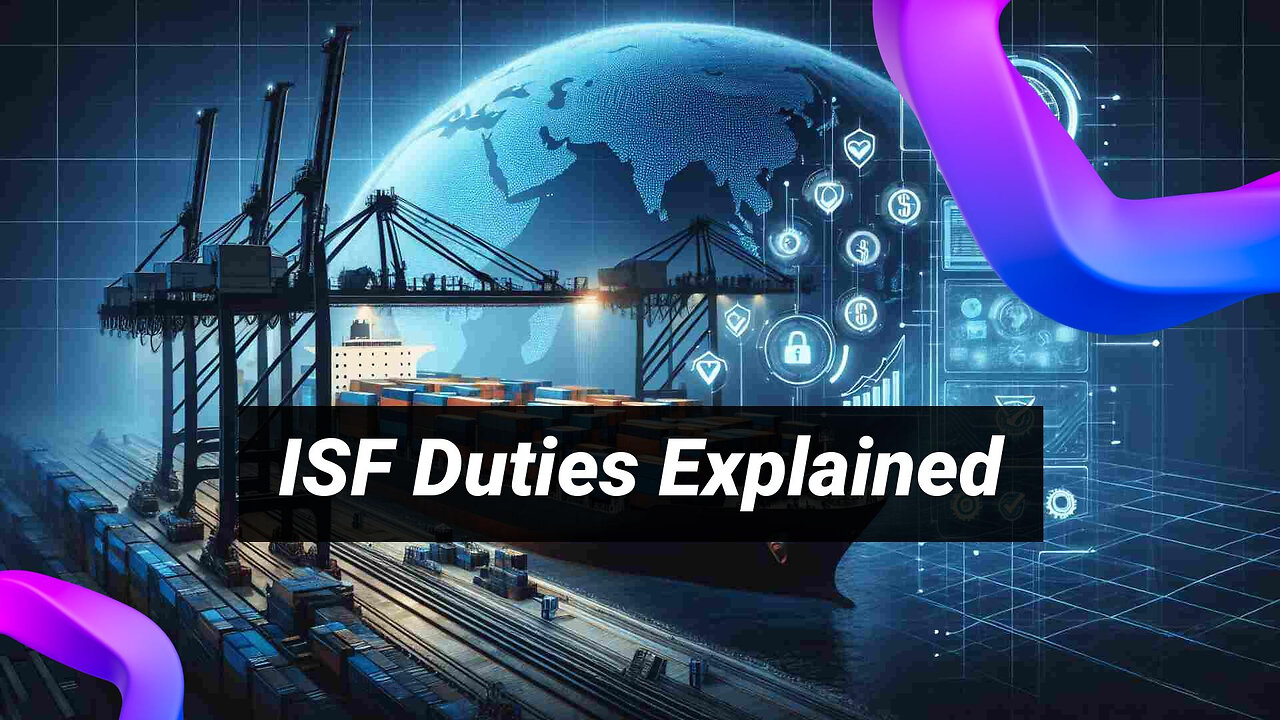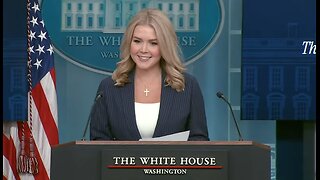Premium Only Content

Unlocking Import Success: The Responsibilities of ISF Importers
License To Import // 323-578-6432 // file@licensetoimport.com // www.licensetoimport.com
In this video, we provided an overview of the key responsibilities of ISF importers in the world of customs brokerage and international trade. We discussed what ISF stands for, which is Importer Security Filing, and its purpose in enhancing supply chain security by providing advanced information to US Customs and Border Protection (CBP) about incoming shipments. We also explained the timelines involved in the ISF process and emphasized the importance of adhering to these timelines to avoid penalties and delays.
Next, we deep-dived into the key responsibilities of ISF importers. We highlighted the primary responsibility of timely and accurate ISF filing, which includes providing all the required information and ensuring its accuracy to avoid penalties, delays, or cargo holds. We also emphasized the importance of updating the ISF if any changes occur after the initial filing to keep CBP informed.
Finally, we discussed the consequences of non-compliance with ISF requirements, including monetary fines, cargo holds or seizures, delays in clearance process, additional inspections, and potential reputational damage. We reiterated the significance of complying with ISF regulations to ensure a smooth import process.
Overall, understanding and fulfilling the responsibilities of ISF importers is essential for importers involved in the importation of goods and for those interested in the import process. Compliance with ISF requirements helps maintain supply chain security and avoid penalties and delays in shipments.
#usimportbond #isfcustomsbroker #uscustomsclearing #isfentry
Video Disclaimer Here: This video is solely for education and is not endorsed by any US government agency.
1:01 Purpose of ISF: Enhance supply chain security by providing CBP with advance information about incoming shipments.
1:37 Timely submission: Importers must submit the ISF 24 hours prior to vessel's departure for the US, with exceptions for shorter transit times.
2:24 Filing options: Importers can file the ISF themselves or hire a customs broker for assistance.
2:53 Accuracy maintenance: Importers must ensure the accuracy of information provided in the ISF.
3:32 Update requirement: Importers must update the ISF if any changes occur after the initial filing, such as vessel schedules or cargo details.
3:46 Consequences of non-compliance: Non-compliance can lead to delays in clearance process, additional inspections, and potential reputational damage.
-
 LIVE
LIVE
LFA TV
22 hours agoDEEP STATE ATTEMPTS TO SABOTAGE DOGE | BASED AMERICA 2.12.25 6PM
906 watching -
 LIVE
LIVE
Melonie Mac
3 hours agoLet's Watch Playstation State of Play
421 watching -
 DVR
DVR
Revenge of the Cis
3 hours agoLocals Episode 196: Aloha
13.1K1 -
 1:05:34
1:05:34
In The Litter Box w/ Jewels & Catturd
23 hours agoReturn to Sender | In the Litter Box w/ Jewels & Catturd – Ep. 740 – 2/12/2025
49.6K31 -
 1:32:17
1:32:17
The Quartering
5 hours agoDOGE Storms the Department of Education, Trump FIRES USAID head, and Teacher freed from Russia
95.4K47 -
 59:57
59:57
The White House
5 hours agoPress Secretary Karoline Leavitt Briefs Members of the Media, Feb. 12, 2025
224K244 -
 1:04:10
1:04:10
John Crump Live
5 hours agoBreaking Down The J6 Pardons With The J6 Pardon Project
4.61K1 -
 1:09:47
1:09:47
Tucker Carlson
5 hours agoKen Paxton: How Soros Protects Drug Cartels, Being Blacklisted by Fox News, and the Laken Riley Act
157K128 -
 1:23:49
1:23:49
Film Threat
9 hours agoCAPTAIN AMERICA: BRAVE NEW WORLD REVIEW (NON-SPOILER) | Hollywood on the Rocks
16.1K4 -
![[Ep 607] Constitutional Crisis! There Is No Proof! AAARRRGG! – Leftist Lunacy & Why It Will Fail](https://1a-1791.com/video/fwe2/bb/s8/1/3/0/u/O/30uOx.0kob-small-Ep-607-Constitutional-Crisi.jpg)
The Nunn Report - w/ Dan Nunn
3 hours ago[Ep 607] Constitutional Crisis! There Is No Proof! AAARRRGG! – Leftist Lunacy & Why It Will Fail
14K8